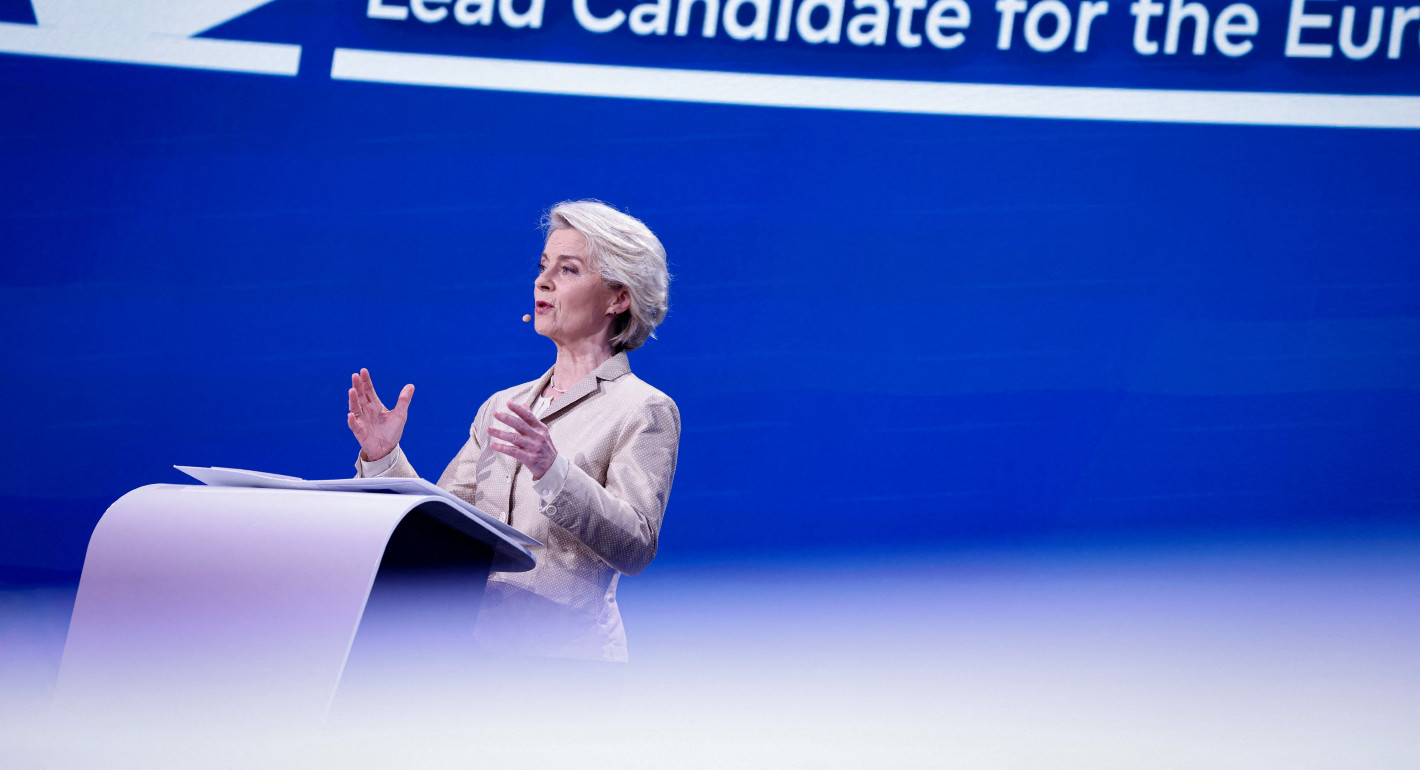On this week’s episode of The World Unpacked, host Sophia Besch speaks with Rosa Balfour, director of Carnegie Europe and co-author of a recent compilation on Europe’s far-right turn, about the European Parliament elections. An excerpt from their conversation, which has been edited for clarity, is below.
Sophia Besch: The narrative ahead of these elections was of a big right-wing surge. If we look at Germany, Italy, and France, right-wing parties did win big, with the Alternative for Germany, the Brothers of Italy, and the National Front [now known as the National Rally] all making substantive gains. Can you explain how these pictures fit together?
Rosa Balfour: My headline answer to this is number one, the center-right did very well. They’ve improved their presence in the European Parliament. They’re by far the largest political group.
Number two, the radical right did continue to grow. We’ve been seeing this over the past twenty years at least, and I think we can expect more shifts coming. Once the dust settles over the elections, there’ll be discussions as to which political group each party will belong to. The radical right increased the number of votes, but because they’re divided, they’re unlikely to be able to form a large group. What we’re looking at is one-quarter of the seats taken up by the radical right, divided into different groups, with representatives from most countries—not all. If you look at the national level, there’s a mixed picture. In some countries they’ve done very well, and in other countries less so.
My third headline is that the Greens suffered a huge defeat. They lost in several countries. And their influence in the European Parliament is certainly diminished. And alongside the Greens, the liberals—the more centrists—have lost quite a few seats. They’ve lost in important countries such as France and Germany.
Sophia Besch: I think there’s a tendency to group all of these rising-right parties into one box. But in your edited collection, you make a distinction between the extreme right, the radical right, and the center right. Could you explain the ideological differences between these groups and how their domestic and foreign policy platforms might differ?
Rosa Balfour: What we’re looking at in this election is what we’re calling the radical right. The radical right is a democratic right but is essentially illiberal.
We looked at fourteen parties in fourteen countries. Of these, six or seven of the parties actually have roots in either fascism or Nazism, neo-Nazism. You know, Rassemblement National [National Rally]—Marine Le Pen’s father was a collaborator with Nazis, right? The Sweden Democrats also have roots in neo-Nazism. Then we have the ethno-nationalist parties or nativist parties. But what brings them together really is that they are democratic, but they are illiberal. The extreme right is illiberal and antidemocratic.
Carnegie This Week
Understand the world with the latest from our scholars around the world.
At the moment in Europe, the dominant parties are radical right. Ten years ago, the dominant parties were more on the populist national right.
The big difference between populism and the radical right is that the radical right has a strong ideological heart. Some come from neo-fascism, and others have a sort of very strong nativist dimension. Populists can flip-flop in different directions. They can be perhaps more easily socialized into the political system.
Populism started rising in Europe in the 1980s, especially in the Netherlands and in Scandinavian countries. But one big shock to the European system was in Italy in 1994, when Silvio Berlusconi won the elections and formed a government with the Lega Nord party. Berlusconi was a classic right-wing populist, and the Lega was a regional nationalist independent party. The government didn’t last very long.
Berlusconi’s party has since been socialized. It’s now part of the center-right grouping in the European Parliament. Nobody would see it as a populist party. Lega is still there, with its original, nationalist, radical-right ideology. That’s the distinction that we wanted to use in the European Parliament, because that is the reality today.
Sophia Besch: I want to talk about the policy areas where we might feel the influence of these parties, specifically climate. Last European Parliament election, there was a green wave. But now, a lot of these far-right parties are Euroskeptic and advocate for more power to individual nations. They push back against EU climate policies. Are the gains made by the far right large enough to significantly influence EU climate policy?
Rosa Balfour: I’m actually very worried about climate.
The key question about the climate policies that the EU has advanced is implementation. I think we might see a bit of patchy implementation. The dynamic here is less that the radical right puts its foot down or says no to this and that. It doesn’t have the numbers to do that. But the other parties may say, “Whoops, if we don’t listen to what the radical right is saying, voters will turn against us.” So you have the mainstream parties implementing positions of the radical right.
This has very much been the case for migration in the past decade at the EU level. I fear that it could also be the case on climate. But it’s a matter really of implementing the EU’s Green Deal rather than making the big decisions. The big decisions have already been made.
To listen to the full episode, use the player below or your favorite podcast app.


-2.png)

-1.png)

